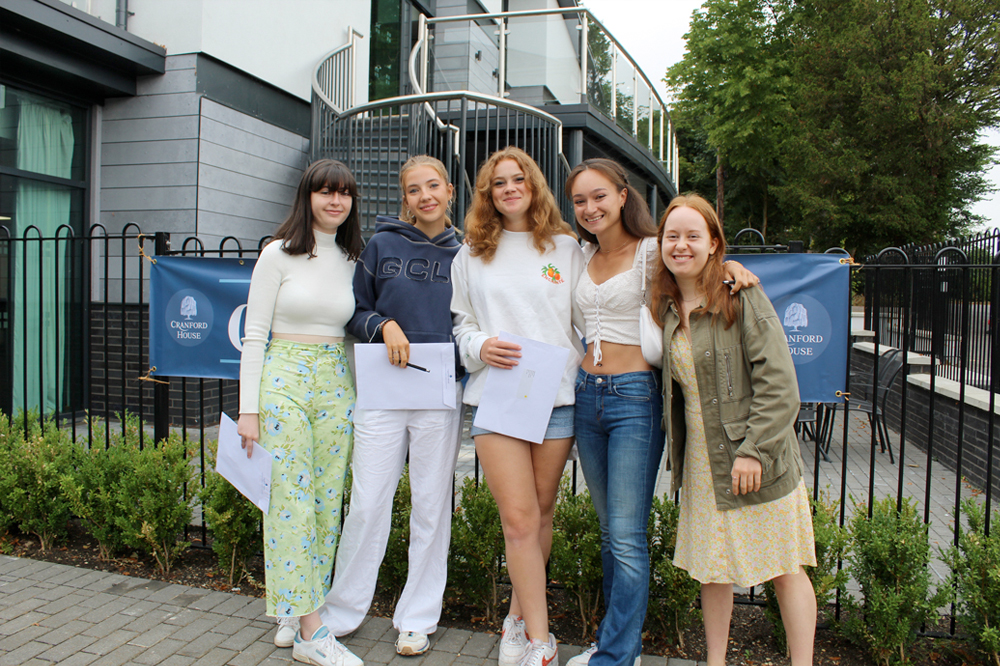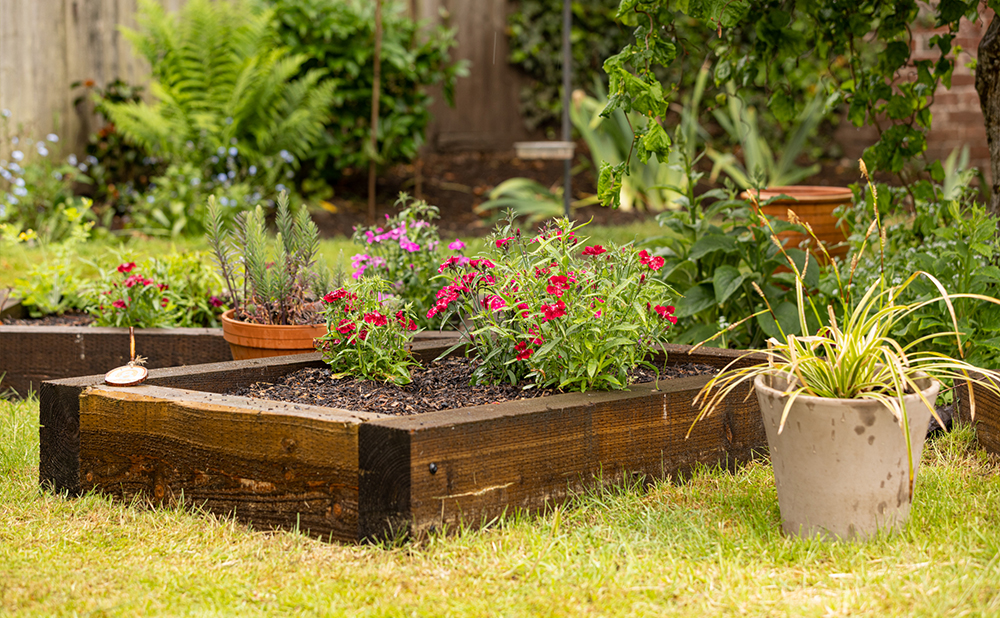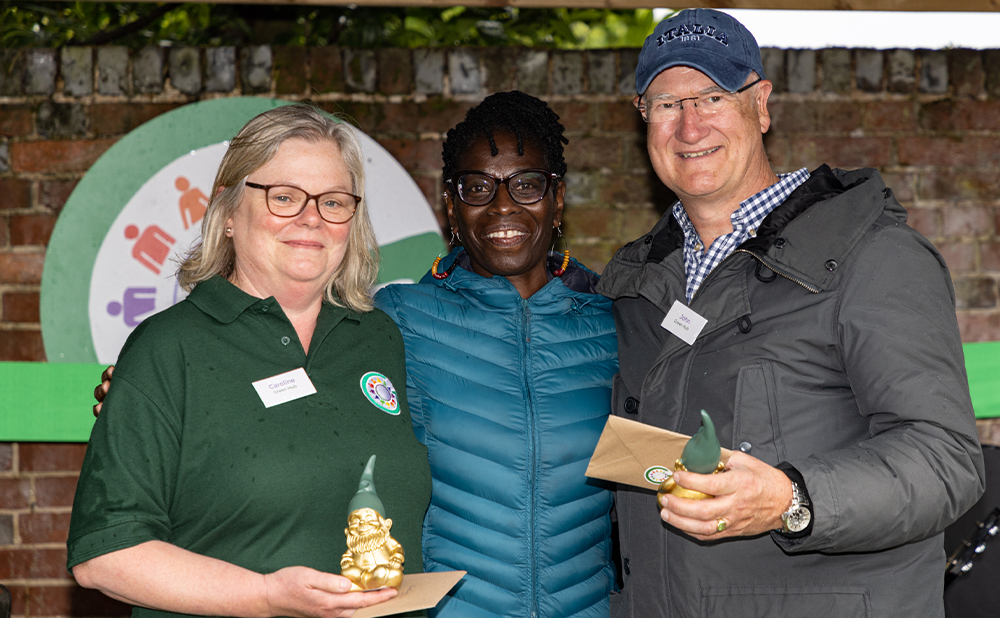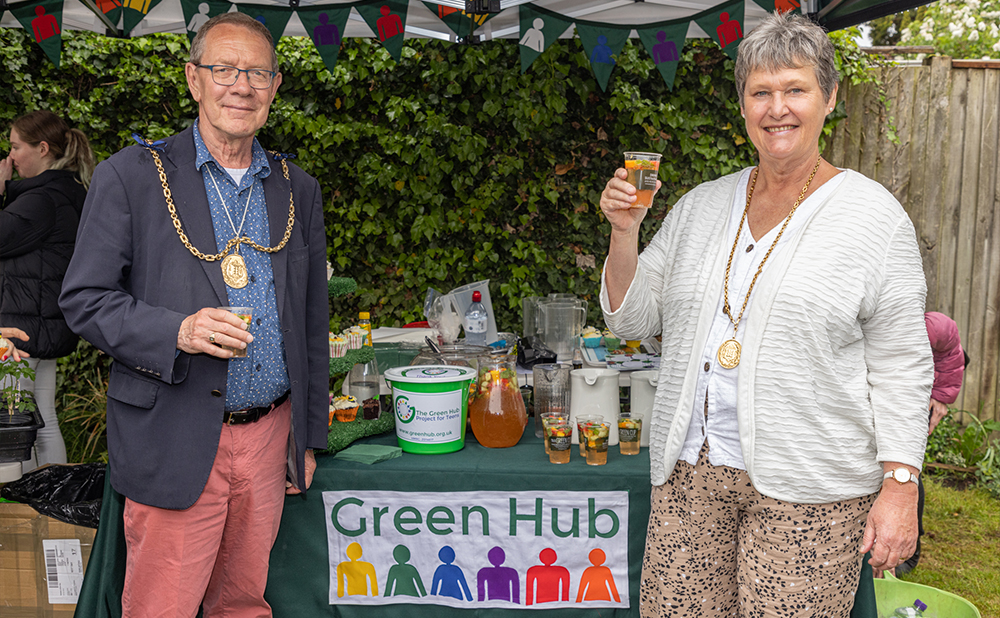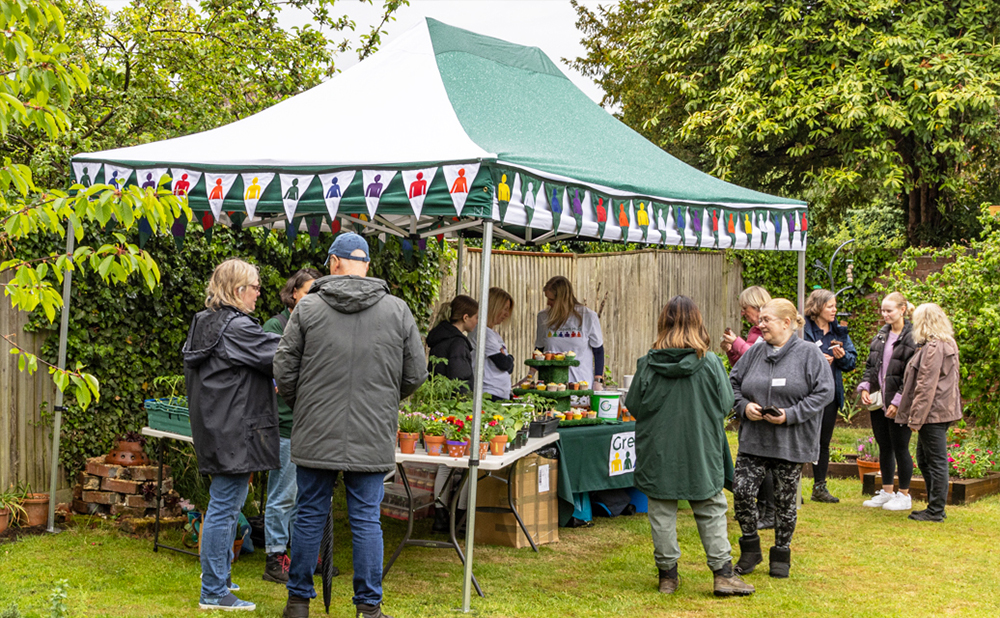Inaugural A-level results at Cranford see students achieving top marks
Following the launch of their new Sixth Form in 2020, students at Cranford House in Moulsford, are celebrating an outstanding set of A-level results with 70% of all grades awarded at A*-B and 42% A*/A, alongside a 100% Pass Rate.
Headmaster, Dr James Raymond paid tribute to the hard work and dedication of the school’s students and the efforts of teaching staff, saying: “I am delighted to be able to celebrate the wonderful achievements of our first cohort of Sixth Form students. I am especially pleased that 91% of pupils are heading off to their chosen university.
We are very proud of each and every student: they richly deserve their success
“Our students have worked exceptionally hard against the backdrop of the pandemic, showing a real thirst for knowledge, creativity and resilience, whilst retaining their sense of fun to achieve an exceptional collection of A-level results.
“We are very proud of each and every student: they richly deserve their success and we are excited to watch them head off to the next steps in the world beyond school. I’m also very proud of the teaching team who have worked so hard to support the students through their A-levels this summer and throughout their time at Cranford.”
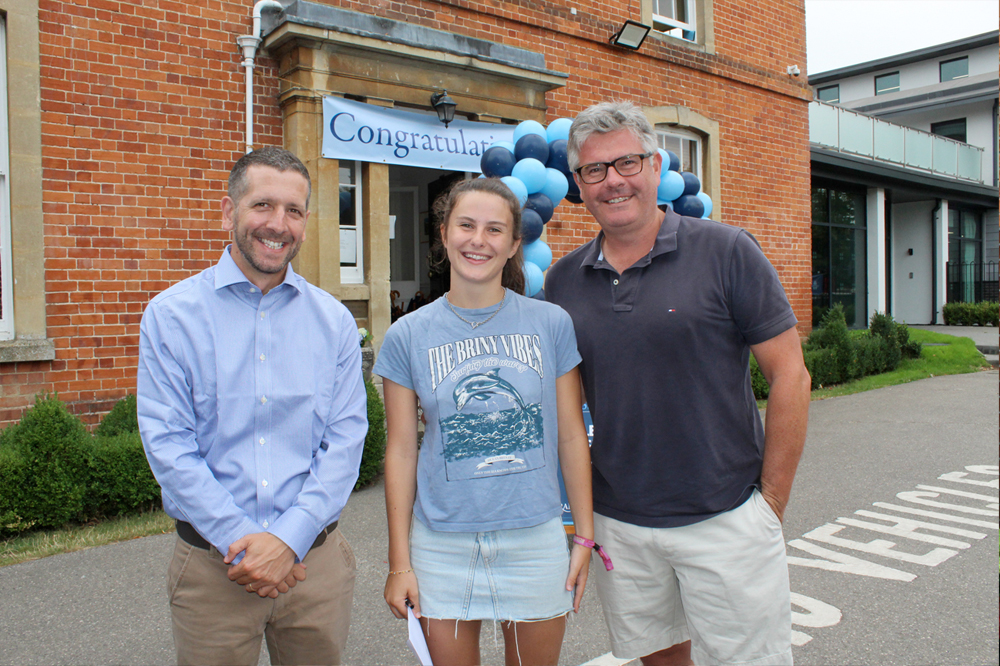
As a leading co-educational day school (3-18), with a strong emphasis on co-curricular provision and pastoral care that really values each individual student, these results underline and reflect the academic excellence that the school has built a reputation for in the Junior School and at GCSE (average value add of +1.6) over the last 5 years.
A busy A-level Results Day has seen families and students celebrating their success in style.
Deputy Head, Megan Carter said: “it is wonderful to see the success enjoyed across Humanities and the Arts with History, Religious Studies, Psychology, Art, Textiles and Music achieving 100% A*-B and English 100% A*/A. Equally impressive, 65% A*-B were awarded across the Sciences. These set of results truly reflect the hard work of the pupils and the academic rigour of the teaching team.”
